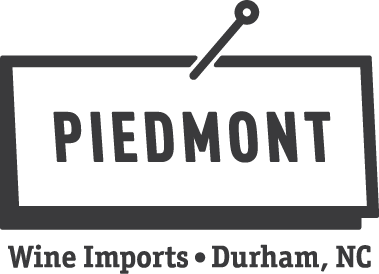Joe Chandellier: a new generation finds freshness in Cévennes
Read MoreWe import European wine, and love the cuisines of France and Germany and Austria and Italy. But let’s face it, in summer our hearts and stomachs turn to the myriad flavors of Italia. A pristine French rosé can ably accompany our favorite frutti di mare fantasies.
Read MorePollastrini is hard to find. It’s not lost along a gravel path on a remote estuary. It is behind a vast abandoned-looking warehouse complex, next a parking lot full of cop cars and fire trucks. On the day of my visit, a burned out and abandoned Mac Truck sat in the shoulder, distracting my attention from the entrance.
Anzio is an hour’s drive south of Rome but still in its sprawl. I felt New Jersey vibes. The cafe where I sipped the tiniest ristretto had gaudy, delicious pastries, scratch off cards, silver velvet chairs, and a clear cast of local characters, including doughnut-eating cops. Confectioner’s sugar and gossip filled the air. My pronunciation of sfogliatelle was very amusing to the barista. Her nails had jewels. Her face could have been on a Roman coin.
It's time to take another look at Alsace. Younger winemakers like Paul at Bott-Freres and Céline at Josmeyer are updating traditions, and expanding the scope of ambitions.
Boundaried by very different winemaking traditions, there’s a notion that Alsace has to overcome paradox to thrive in the 21st century. I see the region’s “cultural crossroads” location as a real asset, a defining virtue, and a key to why Alsatian wines will matter even more in years ahead. By absorbing diverse culinary traditions and accepting that no other place has Alsace’s singular topography and climate, winemakers can break out of the rather hidebound current state of affairs.
A lot is asked of wineries here. The forces of tourism are strong. As is true in other global oenotoursim hotspots, thirsty vacationers aren’t wholly positive in their impact on overall wine quality. An easy path is presented by visitors with certain preconceptions of what Alsace’s wines are, or should be. They come for storks, choucroute, and munster, washed down with anonymous Edelzwicker, or beer.
Read MoreI met Daniele Piccinin in his driveway, in front of an apartment building. Snow had fallen, and melted. I don’t think my anonymous rental car could have traversed the rutted dirt-and-gravel paths to his vineyards and cellar. On the main road through San Giovanni Illarione the wide sky is framed by low mountains. Daniele spends his days above the town. Muni, his ancestral farm, is perched on a steep hillside. Vines thrive in its rocky, cool fields. The valley below Piccinin’s farm extends south to Soave, and west to Verona.
Getting into a 40-year-old Fiat Panda 4x4 is step one. And it’s a challenge for me. I’m 6’2”, and not a gymnast. But Daniele is at least 6’5”. He folds easily into the matchbook-sized vehicle. These seemingly indestructible Pandas-from-the-past are the preferred farm vehicle across multiple hilly wine growing regions of Italy. They are light. They don’t get stuck. They fit through claustrophobic, vertigo-inducing passageways. They’ll handle even the most feeble of Italian roads. Daniele can probably pick the thing up with his bare hands. The man is built for farm work in challenging terrain. It’s like the Alps are in his DNA. He once picked up our photographer by his backpack, with one hand, and moved him out of the way of an onrushing vehicle. It takes a lot of pasta to build that strength.
Read MoreBruno Triguiero sat with his feet in the pool. It was midnight. We listened to samba booming from an invisible speaker, a black lump of plastic perched on the patio wall of a 200-year-old house. Bruno shares the rosé-colored building with Thama Sakuma, and their two daughters. The eldest child sat for a while on the wall. She tried to determine if the commotion was fun worth joining. Eventually she retreated. Final exams for French 13-year-olds would begin in six hours. A sore throat would keep the poor kid from attending. Her voice was raspy, inaudible. But our middle-aged conversations were too boring, even when playing hooky.
“It doesn’t matter how long we live here, we will always be outsiders.” It’s sleepy in 1,000-person Puimisson, a condition amplified by the aversion of locals to new residents. Bruno and Thama moved from São Paolo, to begin second lives as biodynamic farmers. In Brazil they were architects. Bruno needed a change. He had suffered from migraines, and found respite in lifestyle changes based around avoiding processed foods, and spending more time in nature. It was the start of a path that led to Les Chemins de Bassac, and converting an already-organic farm to biodynamic agriculture.
Read More








